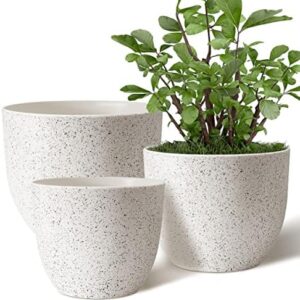Winter is just around the corner, and as the temperatures start to drop, it’s important to think about how to protect your garden from the cold. While many gardeners may think that their plants are safe once the growing season is over, the truth is that winter can be a challenging time for plants. Cold temperatures, frost, snow, and ice can all take a toll on your garden if you’re not prepared.
So what can you do to protect your garden from the cold of winter? Here are some tips to help you keep your plants safe and healthy throughout the colder months.
First and foremost, it’s important to make sure that your plants are well-hydrated before the winter sets in. Hydrated plants are better able to withstand the stress of cold temperatures, so be sure to water your garden thoroughly before the first frost hits. However, be careful not to overwater, as soggy soil can lead to root rot and other problems. It’s a good idea to water early in the day so that your plants have time to dry off before temperatures drop at night.
Once your plants are well-watered, it’s a good idea to add a layer of mulch to your garden beds. Mulch acts as a protective barrier, helping to insulate your plants’ roots from extreme temperature fluctuations. It also helps to retain moisture in the soil, reducing the risk of frost damage. There are many different types of mulch to choose from, including straw, pine needles, and shredded leaves. Whichever type you choose, be sure to spread it evenly throughout your garden beds, keeping it away from the stems of your plants.
In addition to mulch, you may also want to consider using row covers or frost blankets to protect your plants from freezing temperatures. Row covers are lightweight blankets that can be draped over your plants to provide an extra layer of insulation. Frost blankets are similar, but are typically thicker and more effective at protecting plants from extreme cold. Both types of covers can help to create a greenhouse-like environment around your plants, keeping them warm and safe from frost.
If you have delicate or tender plants in your garden, it’s a good idea to move them indoors or into a greenhouse for the winter. Even a few degrees of extra warmth can make a big difference for plants that are sensitive to cold temperatures. If you don’t have a greenhouse, you can create a makeshift one using plastic sheeting or old windows. Just be sure to provide adequate ventilation to prevent the buildup of mold and mildew.
One of the most important things you can do to protect your garden from the cold is to keep an eye on the weather forecast. Pay attention to frost warnings and be prepared to take action to protect your plants if necessary. If frost is predicted, be sure to cover sensitive plants with row covers or frost blankets before temperatures drop. You can also use a sprinkler to coat your plants with a thin layer of water, which can help to insulate them from freezing temperatures.
It’s also important to keep an eye on any potted plants you have in your garden. Plants in containers are more susceptible to cold temperatures than those in the ground, as their roots are not insulated by the surrounding soil. To protect your potted plants, consider moving them to a sheltered location, such as a garage or shed, or wrapping their containers in bubble wrap or burlap to provide extra insulation.
Finally, it’s a good idea to clean up your garden before winter sets in. Remove any dead or diseased plants, as well as any fallen leaves or debris that could harbor pests or diseases. Cut back any overgrown or damaged branches, and prune your perennials to help them weather the winter months. By cleaning up your garden, you’ll not only improve its appearance, but you’ll also help to prevent the spread of pests and diseases that can take advantage of weakened plants.
In conclusion, winter plant care is essential for keeping your garden healthy and thriving throughout the colder months. By following these tips and taking proactive measures to protect your plants from the cold, you can ensure that your garden will be ready to flourish come spring. So don’t neglect your garden this winter – give it the care and attention it deserves, and you’ll be rewarded with a beautiful and bountiful garden in the months to come.






